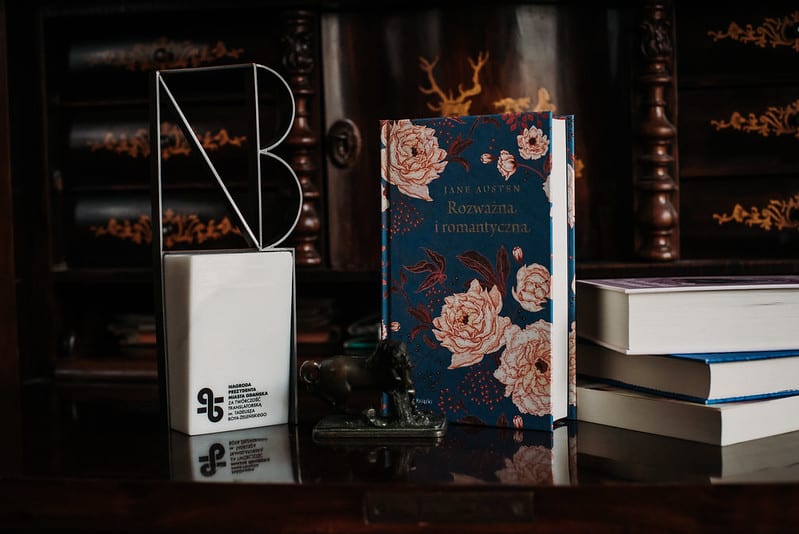Eight translators are shortlisted in the single translation category for the T. Boy-Żeleński Award
Eight translators are nominated in the single work category, for a translated book published in the last two years: René Koelblen and Stanisław Waszak (French), Krzysztof Majer (English), Sebastian Musielak (Finnish), Kamil Pecela (Lithuanian), Anna Sawicka (Catalan), Tomasz Swoboda (French), and Aga Zano (English). The official award ceremony will take place on 21 April during the “Found in Translation” Gdańsk Literary Meetings.

The finalists were chosen by the Award Committee, composed of: Carlos Marrodán Casas, Anna Korzeniowska-Bihun, Piotr Paziński, Julia Różewicz, and Anna Wasilewska (committee chair).
Nominations for the T. Boy-Żeleński Translation Award granted by the Mayor of Gdańsk – translation of a single work:
René Koelblen and Stanisław Waszak (French) for their translation of Georges Perec’s A Void, publ. by Lokator 2022
Perec’s 300-page detective novel is a lipogram devoid of the letter ‘e’ – the most popular French vowel. It’s read like the ‘eux’ (they) pronoun. The formal rules Perec applied to each of his books carry encrypted metaphors: death of one’s parents, experiencing a void, absence, and loss. Both translators delivered a seemingly impossible feat, rearranging Perec’s puzzles – full of allusions to other literary works – in Polish with rare virtuosity.
Krzysztof Majer (English) for his translation of David Markson’s Wittgenstein’s Mistress, publ. by PIW 2022
The most striking quality of Majer’s translation of Wittgeinstein’s Mistress is its precision. The translator painstakingly, step by step, conveys the internal monologue of the novel’s protagonist and narrator, Kate. Without getting lost in the thicket of literary and philosophical allusions or losing the pace, he skilfully transposes and orchestrates the recurring motifs and images in Polish, creating unique, pulsating, sensual prose.
Sebastian Musielak (Finnish) for his translation of Juhani Karila’s Fishing for the Little Pike, publ. by Marpress 2021
The plot of this humorous novel plays out somewhere in northern Finland – a frosty, wild land sparsely populated by people yet full of mythological creatures. The translator brilliantly conveys the atmosphere of the original novel, with its wit and peculiarities of the characters’ speech. He plays with words, inventing names and creating his own grammar. Musielak has no trouble switching between the linguistic order of the real and magical worlds.
Kamil Pecela (Lithuanian) for his translation of Kristina Sabauliaskaitė’s Silva rerum IV, publ. by Wydawnictwo Literackie 2022
Language plays a crucial role in the Lithuanian writer’s tetralogy. Kamil Pecela brilliantly took up this challenge, creatively referring to the (rather obsolete) heritage of silvae rerum, tales and memoirs written by noblemen between the 16th and 18th centuries, and later works stylized to resemble this language. The Polish translation complements this magnificent publishing and literary tradition.
Anna Sawicka (Catalan) for her translation of Mercè Rodoreda’s In Diamond Square, publ. by Marginesy 2022
In Diamond Square is one of the pillars of 20th-century Catalan literature – a classic novel not previously translated into Polish from its original version. The subtle, sparse, honestly naïve and highly evocative narrative style required the translator to constantly keep her guard not to stray away from the selected register. In its Polish rendition, this beautifully sad story is devoid of false notes.
Tomasz Swoboda (French) for his translation of Marcel Proust’s Sodom and Gomorrah, publ. by Officyna 2022
Tomasz Swoboda has managed an extremely difficult feat: creating a new, artistically convincing language for his translation of Marcel Proust’s masterpiece. Under his pen, Sodom and Gomorrah, part four of In Search of Lost Time, shines with a new light, proving that Tadeusz Boy-Żeleński did not have the last word on the subject.
Aga Zano (English) for her translation of Bernardine Evaristo’s Girl, Woman, Other, publ. by Wydawnictwo Poznańskie, 2021
The 2019 Booker Prize Winner had to wait a while for its Polish translation, one of the reasons being the British writer’s alleged untranslatability. This challenge was boldly and convincingly taken up by Aga Zano. Employing varied voices of twelve women, she led us through their colourful life stories, which required inventiveness, wit, solid research and a fresh outlook on language.




